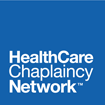Values, Obligations and Rights: Health Care Ethics
Course Author: Sue Wintz, M.Div., BCC
This course, Values, Obligations and Rights: Health Care Ethics, is designed to introduce the concepts of biomedical ethics and assist chaplains and spiritual care providers in understanding and applying those concepts to daily professional practice. It includes information on how diverse beliefs and values due to cultural, religious, spiritual, and/or existential beliefs may impact a patient or family’s experience and decision-making. Chaplains and spiritual care providers are in the unique position of serving as mediators and facilitators in the interaction of and care for patients, families, and staff. This course will explore the ethical issues in health care, including the nuanced applications of ethical principles and theories in a case study example.
By the end of this course the learner will be able to:
- Describe the four ethical principles of respect, justice, nonmaleficence, and beneficence.
- Identify the ethical and moral challenges that may occur in relation to health care.
- Articulate the role of religious, spiritual, existential, and cultural factors in ethical discussions in health care.
- Describe the role of the chaplain or spiritual care provider when ethical situations arise, including assessment, interventions, and documentation.
- Identify the importance of and how to secure information on faith tradition directives regarding medical interventions such as termination of pregnancy, use of certain medications or ingredients, provision, withholding or withdrawing of life-sustaining treatments.
- Gain understanding about interventions to respect and advocate for the development of plans of care that accurately incorporate the patient or surrogate’s stated beliefs, values, culture, and preferences without inserting one’s own beliefs.
- Identify the components of an ethics referral and the role of an ethics committee and consult.
Course Outline
- Introduction to medical/health care ethics
- Four principles
- Medical decision making
- Life-prolonging medical interventions
- Medical futility 6. Palliative sedation
- Role of the professional chaplain or spiritual care provider
- When the culture avoids ethical issues
- Clinical ethics consultation service
- Summary
Number of Continuing Education Hours: 35
Credit towards Board Certification Requirements: 1
Aligns with the following Quality Indicators in What is Quality Spiritual Care in Health Care and How Do You Measure It? (HCCN. 2016).
- Structural Indicator 1.C. Information is provided about the availability of spiritual care services.
- Process Indicator 2.B. All clients are offered the opportunity to have a discussion of religious/spiritual concerns.
- Process Indicator 2.C. An assessment of religious, spiritual, and existential concerns using a structured instrument is developed and documented, and the information obtained from the assessment is integrated into the overall care plan.
- Process Indicator 2.E. Families are offered the opportunity to discuss spiritual issues during goals of care conferences.

